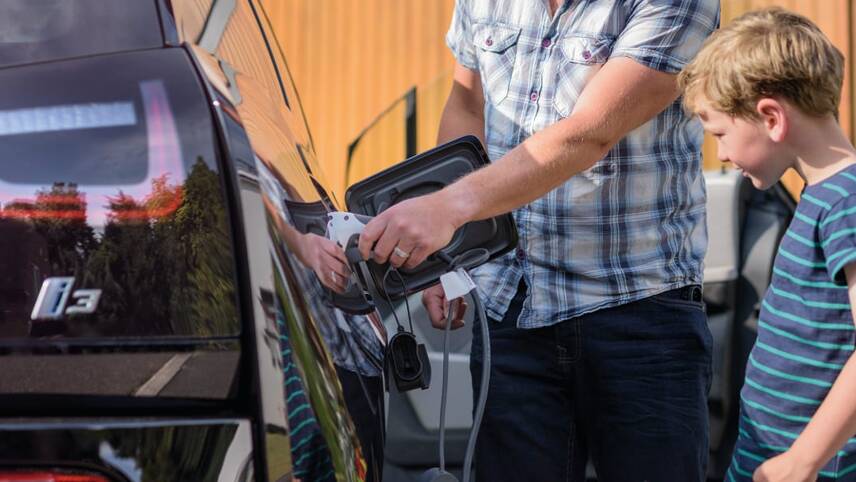You’ve reached your limit!
To continue enjoying Utility Week Innovate, brought to you in association with Utility Week Live or gain unlimited Utility Week site access choose the option that applies to you below:
Register to access Utility Week Innovate
- Get the latest insight on frontline business challenges
- Receive specialist sector newsletters to keep you informed
- Access our Utility Week Innovate content for free
- Join us in bringing collaborative innovation to life at Utility Week Live

A new report exploring possible options to enable electric vehicle (EV) owners to benefit from smart charging has warned against mandating the use of the Data Communications Company’s (DCC) network.
The Future of Electric Vehicle Smart Charging report produced on behalf of trade body Energy UK, assesses a variety of smart charging at home options and the benefits and protections they will need to provide consumers and the energy system.
It is backed by the Association for Decentralised Energy (ADE), the energy technology manufacturers association BEAMA, the Association for Renewable Energy and Clean Technology (REA) and techUK.
The report considers three approaches to smart charging:
- Smart metering system control
- Non-smart metering system control
- Smart/Non-smart hybrid
While smart charging is currently mostly carried out by chargepoint operators, the government has indicated its preference for using the smart meter network in future.
The report however raises several concerns about mandating the smart meter system as the only option for smart charging solutions to support demand control.
These include the fact it is a GB-specific solution only, it does not cover the non-domestic sector, a lack of DCC capacity for the volume of signals needed for smart charging and also the fact making any changes to the system is a very drawn-out process which involves updating the Smart Energy Code.
In a foreword, Energy UK chief executive Emma Pinchbeck said the trade body recognised that smart metering infrastructure will act as the building block on which smart charging is based, providing access to information about energy usage and costs, but added that mandating the DCC as the “enduring solution” for smart charging is “not the way to go”.
Pinchbeck warned of the need to avoid GB-centric solutions when the market for EVs and chargepoints is a global one.
“We must ensure that any solution avoids single points of failure; we should seek solutions that work for both the domestic and non-domestic sector; we must prioritise approaches that increase rather than restrict functionality,” she said.
Pinchbeck added that companies that are “pushing the limits of technology” need to be allowed to continue to do so, so that smart charging remains “synonymous with innovation, customer-focus and an excellent user experience”.
The report points to successful trials such as My Electric Avenue and Electric Nation, both of which showed that using chargepoint operators to facilitate control of demand at the EV chargepoint without using the smart meter network is possible and effective.
Furthermore, while the report highlights the fact the government has asked industry to provide credible alternatives to using the smart meter network, it calls for more clarity on the requirements, especially around cyber security, in order for the sector to be able to design innovative new products.
Pinchbeck added: “It’s clear from our research that there are a range of smart charging at home options that are secure, that unlock innovation and that deliver for customers. Industries in the EV market need government to listen to their concerns and recommendations and to clearly lay out their smart charging system requirements so we can build and deliver it.”




Please login or Register to leave a comment.